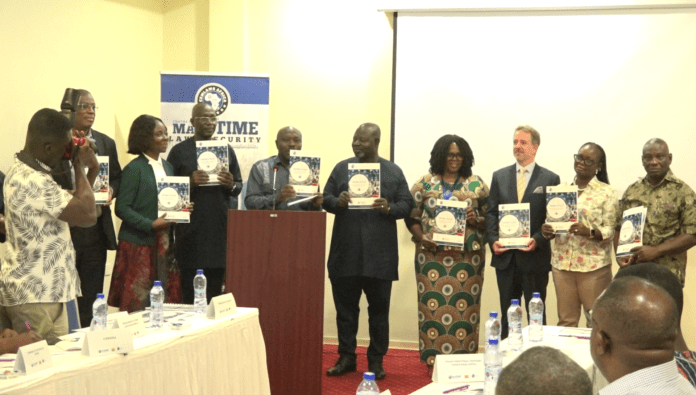
A recent finding indicates Ghana performs poorly in transparency when it comes to its
marine fisheries sector. Specifically, the finding indicated that although data exists
within Ghana’s fisheries administration, majority of this data is not publicly accessible.
This revelation came up during the report launch of the assessment of online
transparency of Ghana’s Fisheries Management Information, an initiative of the
Fisheries Transparency Initiative (FiTI) and the Centre for Maritime Law and Security
(CEMLAWS) Africa, with support from Bloomberg Philanthropies.
During the launch, stakeholders within the fisheries sector gathered to evaluate the
report and make recommendations for the future.
Reacting to the report, the Deputy Minister of Fisheries and Aquaculture Development,
Moses Anim, said the ministry has taken note of the gaps and the recommendations outlined in the report and will take steps to address them. He called on FiTI, CEMLAWS Africa and Bloomberg Philanthropies to help Ghana implement the recommendations.
According to the deputy minister, this assessment is “a wake-up call for us to join the Fisheries Transparency Initiative.”
The Executive Director of the Fisheries Transparency Initiative, Sven Biermann, said the
purpose of the report is to help lead Ghana’s fisheries sector on a gradual upward trend toward transparency and sustainable development.
“At the end of the day, why we need public access to information is to contribute to the better governance of fisheries. There is a lot of research out there and if you look at the analysis, the fish stocks around the world that are doing well are those where there is what is called participatory governance, which means there is a balance between the national authorities making the recommendations, making the policies, putting the policies into practice and at the same time non-governmental sector – such as business, civil society and media – being able to understand what government is doing, contributing to these policies in the first place, and exercising effective oversight. Obviously, this cannot happen if one side does not have access to information to understand what is exactly happening,” he explained.
The Team Lead at the Centre for Maritime Law and Security (CEMLAWS) Africa, Dr. Kamal Deen-Ali corroborated this objective. He said it requires a certain level of digital infrastructure to be able to provide adequate access to information; so “our government must provide the requisite digital infrastructure to host the information and to make it available. It requires a certain level of technical expertise or personnel to be dedicated to the job of making information available. Again, it may require some recruitment, some refresher training and certain level of expertise at the Cinistry and the Fisheries commission so that can happen”.









